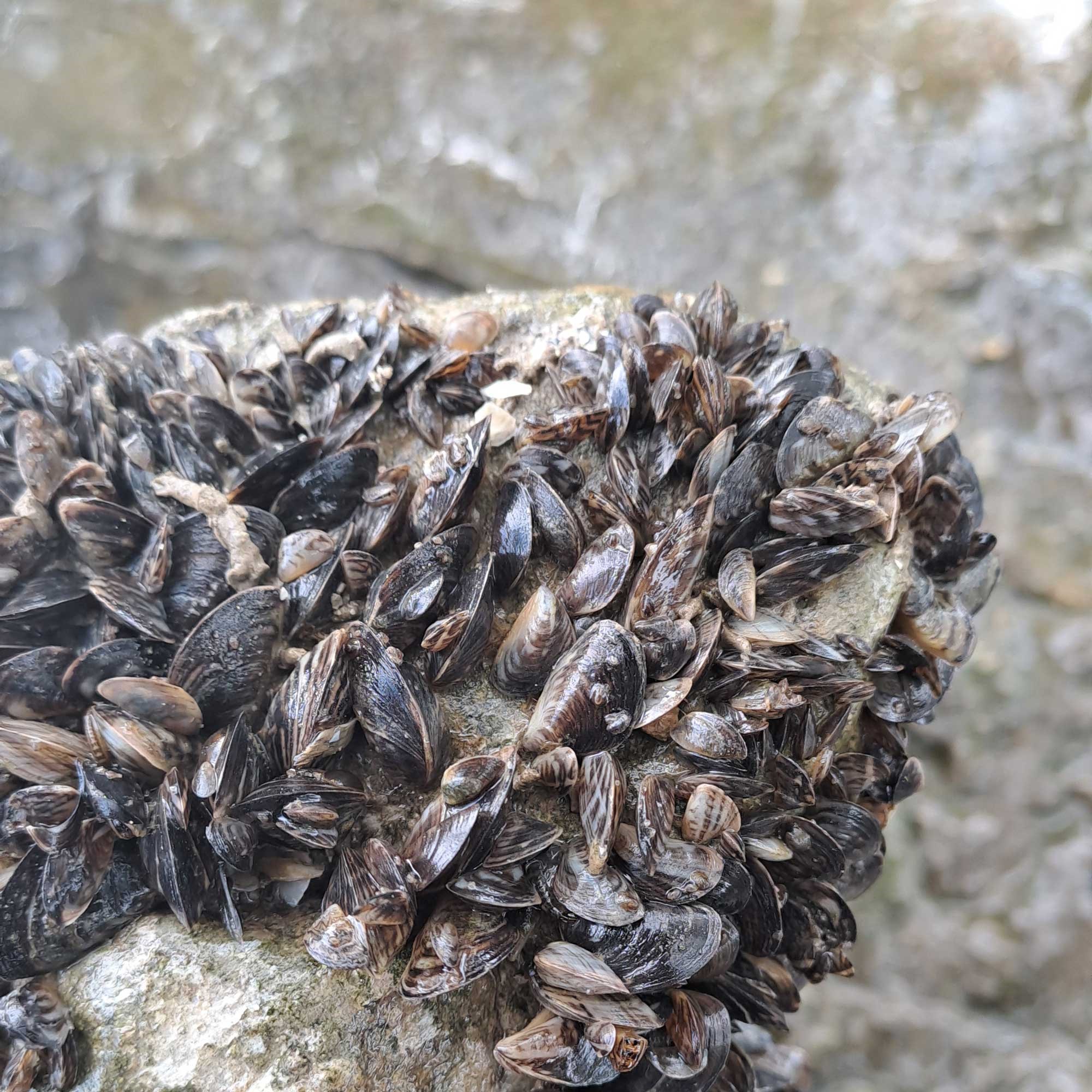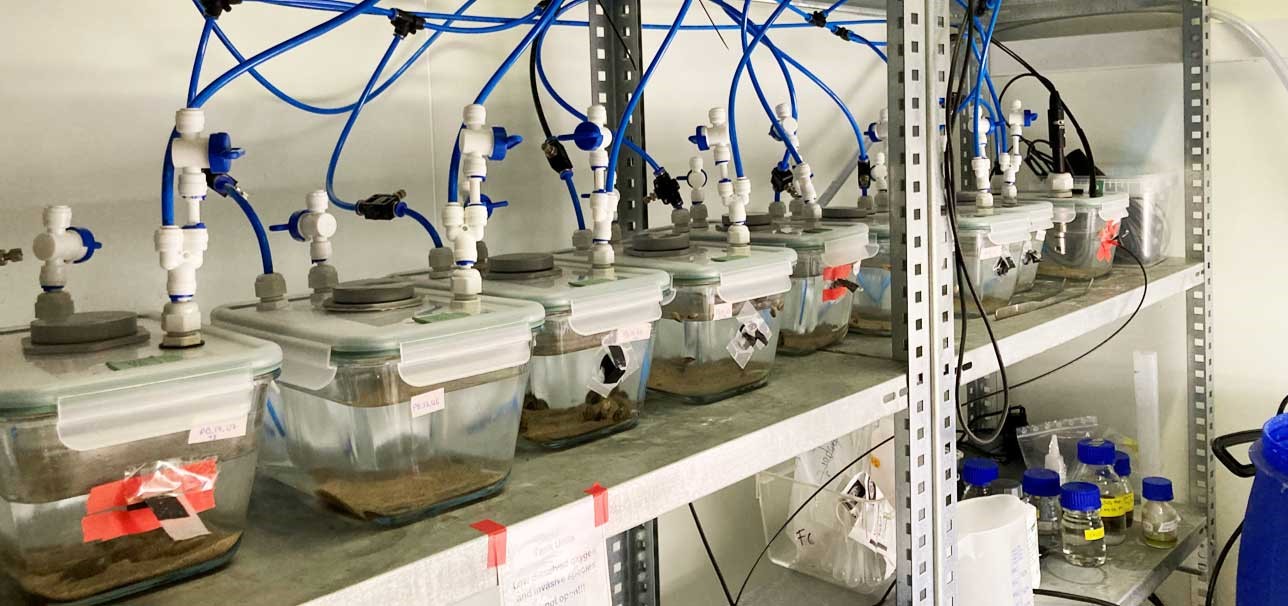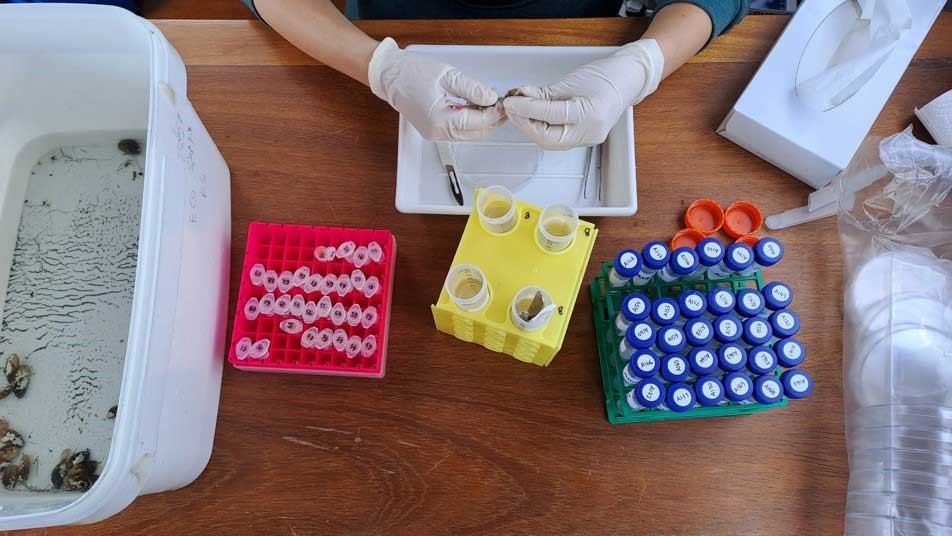How will the invasive Quagga mussels develop in a changing lake?
Research approach
The invasive Quagga mussel (Dreissena rostriformis bugensis) has established populations in several Swiss lakes and rivers over the past decade. This species shows remarkable ecological plasticity, being able to reproduce almost all year round and colonizing the hard and soft substrates across a wide depth gradient, from shallow water to depths of over 300 m. Across depths, two distinct ecotypes occur, the shallow ecotype (typical) and the deep ecotype (profunda), which is found from 20-30m depth in Lake Constance. While morphological differences between shallow- and deep-water populations have been observed, no genetic differentiation was found across the whole genome, indicating that the development of the profunda morph is the result of phenotypic plasticity. However, it is not known if the profunda morph provides an adaptive advantage for living at greater depths or if it is the result of other environmental factors.
Climate change is expected to alter key environmental factors such as temperature, oxygen levels and food availability in Swiss lakes. Therefore, understanding how Quagga mussels will respond and adapt to these changes is critical to predicting their future impact and population dynamics.
By combining field observations, experimental results and environmental data, this project will provide a better understanding of the adaptive ability of the invasive Quagga mussel in a changing environment, with important applications for the development of effective management strategies for Swiss freshwater ecosystems.
Objectives
This sub-project aims to explore the mechanisms of rapid adaptation and acclimation in the invasive Quagga mussel by combining a multigenomics approach and laboratory experiments. Specifically, we aim to:
- Characterize gene expression levels and DNA methylation patterns in shallow and deep water Quagga mussels from Lake Constance and Lake Geneva.
- Experimentally evaluate the combined effects of temperature, oxygen levels and food availability on survival, growth, gene expression and DNA methylation in both ecotypes under controlled laboratory conditions.
- Compare transcriptomic and epigenetic responses between field-collected and laboratory-exposed mussels to identify common and environment-specific adaptive mechanisms.
- Monitor yearly the distribution and abundance of Quagga mussels in Lake Constance.
- Link physiological data with environmental data to predict the present and future distribution, success and ecological impact of Quagga mussels in Lake Constance under different climate scenarios.

Quagga mussels can form dense aggregations on various substrates.
(Photo: Joana L. Santos, Eawag)
Cooperation within the SeeWandel-Climate project
Coordination of the SeeWandel-Climate thematic working group “Importance of the quagga mussel”. In particular, this working group brings together the knowledge and findings in connection with the quagga mussel invasion in European lakes and the North American Great Lakes as well as their respective courses and effects.
Project team
Eawag – Swiss Federal Institute of Aquatic Science and Technology, Department Aquatic Ecology, Switzerland
![]() Dr. Alexandra Anh-Thu Weber – Project leader
Dr. Alexandra Anh-Thu Weber – Project leader
Associated project partners
Great Lakes Center, Buffalo State – The State University of New York, USA
Prof. Dr. Alexander Y. Karatayev, Dr. Lyubov E. Burlakova
Lake Constance Water Industries Association (BWV), Germany
Dr. Roland Schick
City of Zurich Water Supply (WVZ), Switzerland
Dr. Oliver Köster
In collaboration with
Dr. Petra Teiber-Siessegger, Institute for Lake Research (ISF) of the State Agency for Environment Baden-Wuerttemberg (LUBW), Germany
Monitoring veliger larvae in Lake Constance
Prof. Dr. David Schleheck, Limnological Institute, University of Konstanz, Germany
Monitoring quagga mussel in Lake Constance


